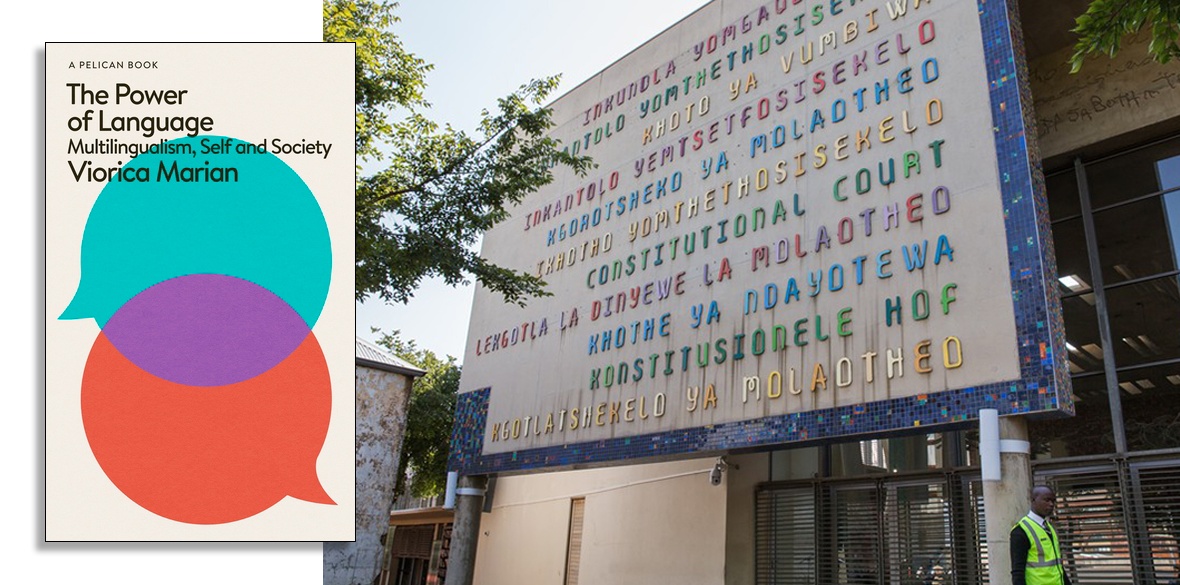This is the last article you can read this month
You can read more article this month
You can read more articles this month
Sorry your limit is up for this month
Reset on:
Please help support the Morning Star by subscribing here
The Power of Language
Viorica Marian, Pelican Books, £22
THE subtitle of this intriguingly informative book reads, Multilingualism, Self and Society. It would be unfortunate if readers were put off by the author’s early definition of multilingualism as “not a fixed construct but a mental state in perpetual flux... constantly changing, based on the information the brain receives continuously from the auditory, visual, tactile, gustatory, vestibular and proprioceptive inputs.”
Viorica Marian, a Romanian professor of psychology and specialist in communication sciences, speaks and has studied a dozen languages. The substance of her argument maintains that those fortunate enough to know and use more than one language, whether born into a multilingual family or through acquiring a language other than their vernacular, are equipped with advantages in understanding and therefore enabled to react to our world far beyond that of simply communicating with foreigners.
Descartes’s “I think therefore I am” has been one of the bedrocks of modern psychology and although Marian recognises that “language does not fully determine thought, it is one of the key factors that... influence how we think and who we are.”
Among examples she points out how in English you “pay” attention, in Spanish you “lend” it, in French you “make” it, in German you “gift” it. The concept of time is seen as horizontal by English speakers – before and after an event – whereas Mandarin speakers talk of time vertically – up and down.
Multilinguals learn new ways of thinking about not only common but serious experiences and consequently can respond more objectively.
In processing language we all combine information from different modalities. Synaesthesia, a term for experiencing one of the senses through another, is not uncommon, such as in the well-known example of seeing a particular colour when we hear certain music.
Recent years have seen great progress in neuroscience’s understanding of how the brain works and how learning new languages “rewires the brain... creating a denser tapestry of connectivity.”
Most encouraging for contemporary mental health concerns is the finding that “knowing more than one language delays Alzheimer’s and other types of dementia by four to six years on average.” If one part of the brain decays then a multilingual has the advantage of having other pathways in the brain to cope with memory-loss and other functions.
At the other end of life, evidence exists to demonstrate that bilingual children are much more capable than their monolingual contemporaries at sorting tasks and “focusing on what is important and what is not important” and even that they understand earlier that “other people’s mental states or intentions can differ from their own.”
In the second part of her book, Marian moves to how language affects our society’s structure and core. Advertisers’ and politicians’ manipulative use of language is commonly understood but a keen awareness of the nature of rhetoric is assisted by multilingualism.
In commenting on the former, Marian suggests that President Kennedy’s use of “ich bin ein Berliner” in his 1963 cold war speech to his West German audience resonated deeply with the listeners, not realising that the effect was more hilarity as he had not understood that the berliner was a type of jam doughnut.
We do not need a Trump to be aware that “languages... have always been heavily politicised... and used to incite and subdue national movements and identity.”
A final chapter places linguistics as one code of many, including mathematics, cognition and of course our DNA, that constitute and control human consciousness: “We live in a world of codes, we are code... we are made of code.”
This is a very necessary book that reveals “language in all its forms is the key to understanding our world and perhaps saving it.”









